Prostate Cancer Treatment in Singapore
Effective
Compassionate

of Experience

Prostate Surgery


Care & Support
With earlier detection and intervention, prostate cancer can be effectively treated.
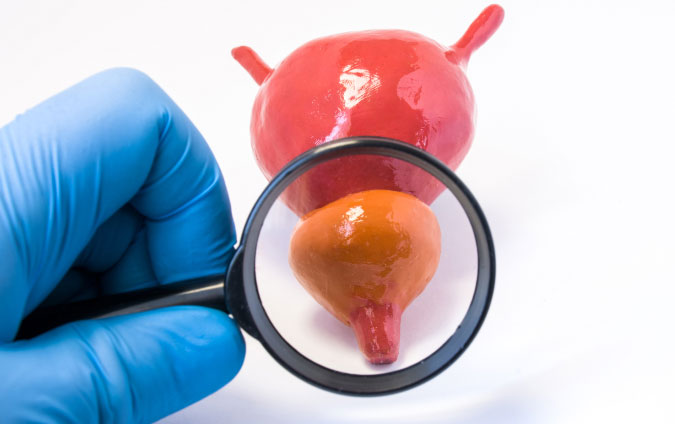
What Is Prostate Cancer?
The prostate is a small gland located below the bladder and in front of the rectum. It produces seminal fluid that helps nourish and transport sperm. Prostate cancer occurs when cells in the prostate gland begin to grow uncontrollably.
The most common type of prostate cancer is adenocarcinoma. Most cases are diagnosed at an early stage, where the cancer is still confined to the prostate and treatment outcomes are generally favourable.
What are the Symptoms of Prostate Cancer?
Early prostate cancer often has no symptoms. When symptoms do appear, however, they may include:
- Difficulty urinating or a weak urine stream
- Increased frequency of urination, especially at night
- Blood in the urine or semen
- Pain or discomfort in the pelvic area
- Erectile dysfunction
- Bone pain (in cases of advanced disease)
Because these symptoms can also be caused by non-cancerous conditions such as benign prostatic hyperplasia (BPH), medical evaluation by a urologist is essential.
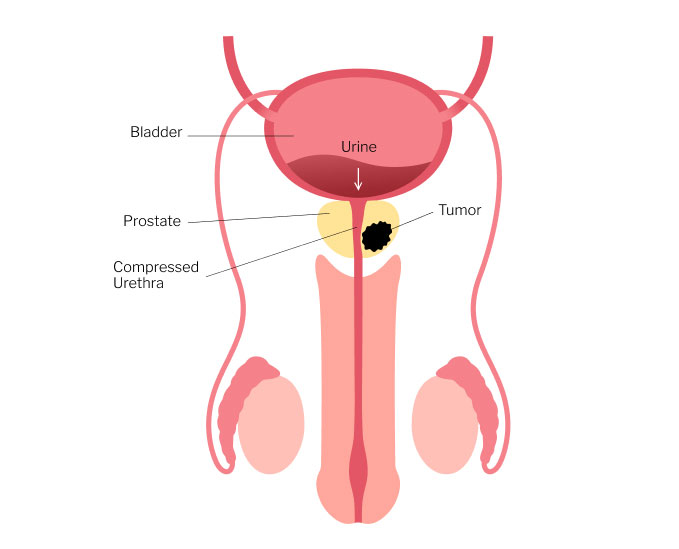
If you notice any of these symptoms above.
Please call 6518 3622 to schedule an evaluation with our prostate cancer specialist.

Who Is at Risk of Prostate Cancer?
Several factors can increase a man’s risk of developing prostate cancer:
- Age: Risk increases significantly after age 50
- Family History: Having a father or brother with prostate cancer increases one’s risk
- Diet and Lifestyle: A high-fat diet and sedentary lifestyle may contribute to one’s risk level
Men with a strong family history or other risk factors may benefit from earlier screening discussions.
Prostate Cancer Screening in Singapore
Prostate cancer screening typically includes:
- Prostate-Specific Antigen (PSA) blood test
- Digital Rectal Examination (DRE)
A high PSA level doesn’t necessarily mean cancer, but it may indicate the need for further tests such as MRI or a prostate biopsy. Routine screening is usually recommended starting from age 50, or earlier for those with higher risk.
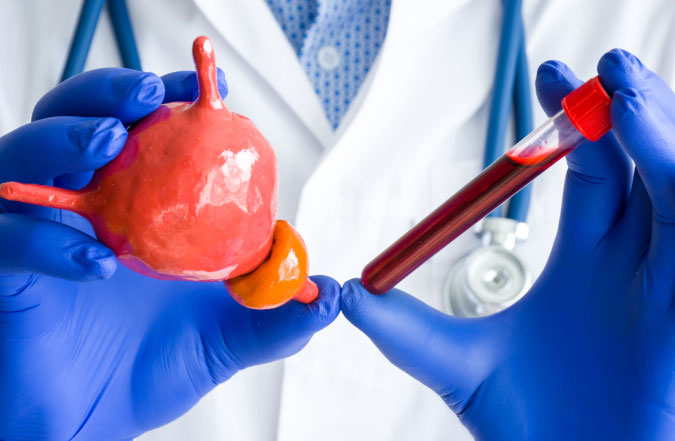
How Is Prostate Cancer Diagnosed?
If prostate cancer is suspected, the following tests may be carried out:
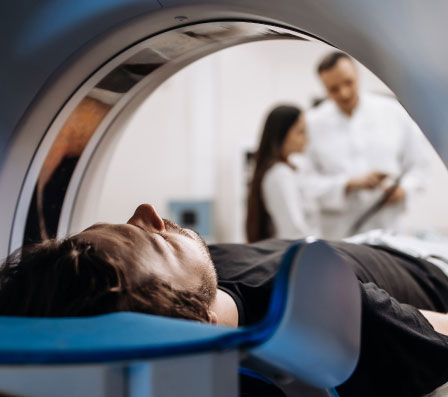
MRI of the prostate:
To assess the location and extent of abnormal tissue
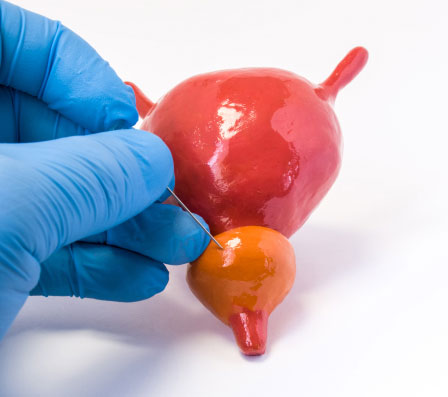
Prostate biopsy
Tissue samples are taken and examined for cancer cells
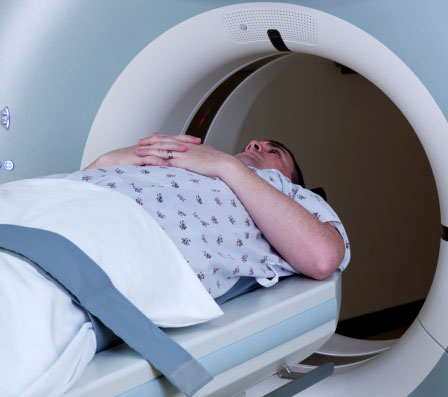
PSMA PET-CT scan
Used if there is concern the cancer may have spread
Prostate Cancer: Staging & Grading
Prostate cancer is staged based on how far it has spread and graded based on the appearance of cancer cells, which help determine the best course of treatment.
Localised prostate cancer
Confined to the prostate
Locally advanced prostate cancer
Spread to nearby tissues
Metastatic prostate cancer
Spread to other organs such as bone or lymph nodes
What are the Treatments for Prostate Cancer in Singapore?
Treatment depends on the stage, PSA levels, patient age, and overall health. Options include:
Active Surveillance
For men with low-risk, slow-growing prostate cancer, especially in older individuals or those with other health issues, active surveillance may be appropriate. This approach involves regular PSA tests, digital rectal exams (DRE), and periodic MRI scans and biopsies to monitor the cancer closely, delaying or avoiding treatment unless the cancer progresses.
Prostate Cancer Surgery (Radical Prostatectomy)
Involves the complete surgical removal of the prostate gland, and sometimes nearby lymph nodes. This is a common treatment for localised prostate cancer. Minimally invasive techniques, such as laparoscopic or robotic-assisted surgery, may reduce recovery time and side effects such as incontinence or erectile dysfunction.
Radiation Therapy
Radiation uses high-energy beams to target and kill cancer cells. Options include:
- External beam radiation therapy (EBRT): Delivered from outside the body, typically over several sessions.
- Brachytherapy: Involves implanting radioactive seeds directly into the prostate to deliver localised radiation over time.
Hormonal Therapy (Androgen Deprivation Therapy)
Prostate cancer cells often depend on testosterone and other male hormones (androgens) to grow. Hormonal therapy works by lowering hormone levels or blocking their effect, helping to slow the growth of the cancer. It’s commonly used for advanced, high-risk, or recurrent prostate cancer, often in combination with radiation.
Chemotherapy and Advanced Therapies
Chemotherapy involves drugs that kill rapidly dividing cells, including cancer cells. It’s typically used when the cancer has spread outside the prostate and no longer responds to hormone therapy.

Can Prostate Cancer be Prevented?
While prostate cancer cannot always be prevented, certain lifestyle changes may help reduce risk:
- Maintain a balanced diet rich in vegetables, fruits, and whole grains
- Exercise regularly
- Maintain a healthy weight
- Avoid smoking
- Discuss screening options with a doctor, especially if at higher risk
When to See a Urologist for Suspected Prostate Cancer
You should consider seeing a urologist if:
- You are over 50 and considering PSA screening
- You have urinary symptoms or pelvic discomfort
- You have a family history of prostate or other cancers
- Your recent PSA test shows elevated or rising levels
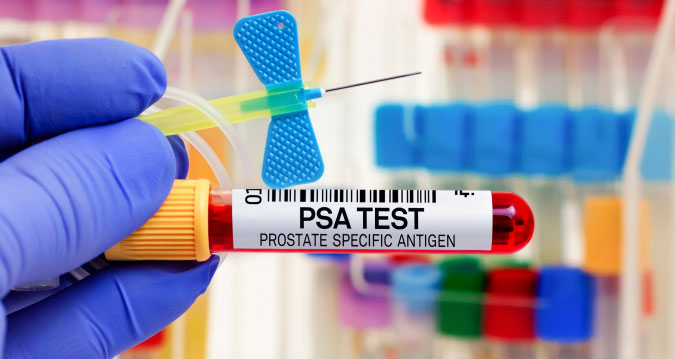

Our Prostate Cancer Specialist
Dr Tan Teck Wei
MBBS (S’pore), DFD (CAW), MRCS (Edin),MMed (Surgery), FAMS (Urology)
Dr Tan Teck Wei is a Senior Consultant Urologist and former Director of Genitourinary Oncology at Tan Tock Seng Hospital. Skilled in the management of prostate cancer, Dr Tan strives to provide empathetic and effective care with the patient’s best interests in mind. He is fellowship-trained in open, laparoscopic and robotic urologic surgery; and has held numerous leadership and academic positions. Dr Tan understands the distress faced by patients and their families, and is committed to providing care that is not only medically sound but also supportive, personalised, and attuned to each patient’s circumstances.
FAQs on Prostate Cancer
Early prostate cancer often has no symptoms. Some men may notice difficulty urinating, frequent urination at night, or weak urine flow.
A PSA test measures prostate-specific antigen in the blood. Men aged 50 and above (or earlier if at higher risk) may benefit from regular screening.
Treatment options include active surveillance, surgery (prostatectomy), radiation therapy, and hormone therapy depending on the stage and aggressiveness.
Treatment may affect urinary control and sexual function, but newer techniques aim to minimise these side effects.
Recovery from robotic-assisted or laparoscopic prostatectomy typically takes 2 to 4 weeks, while open surgery may require a longer recovery period. Most patients gradually return to normal activities within a month, though full recovery of urinary and sexual function may take longer.
For enquiries on your condition or appointment booking, please fill in the enquiry form and we will be in touch with you soon. Your health and well-being are our top priorities, and we look forward to assisting you on your medical journey.



